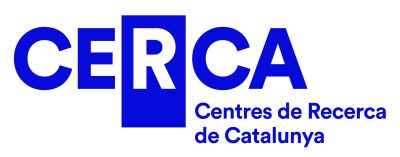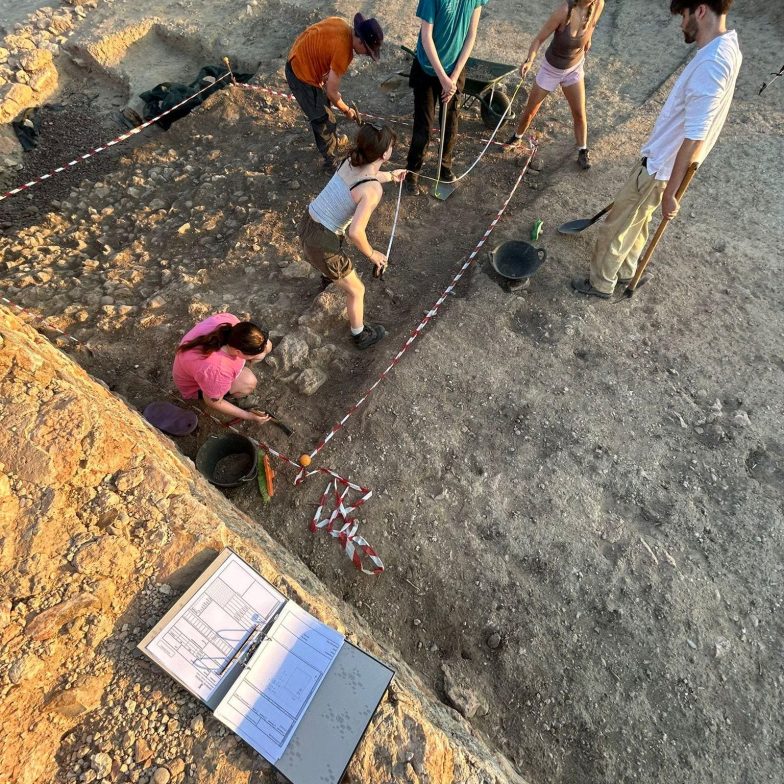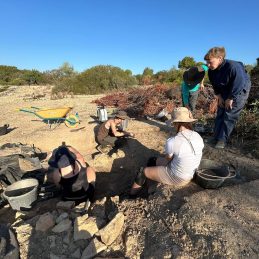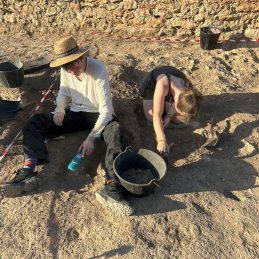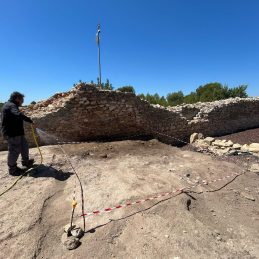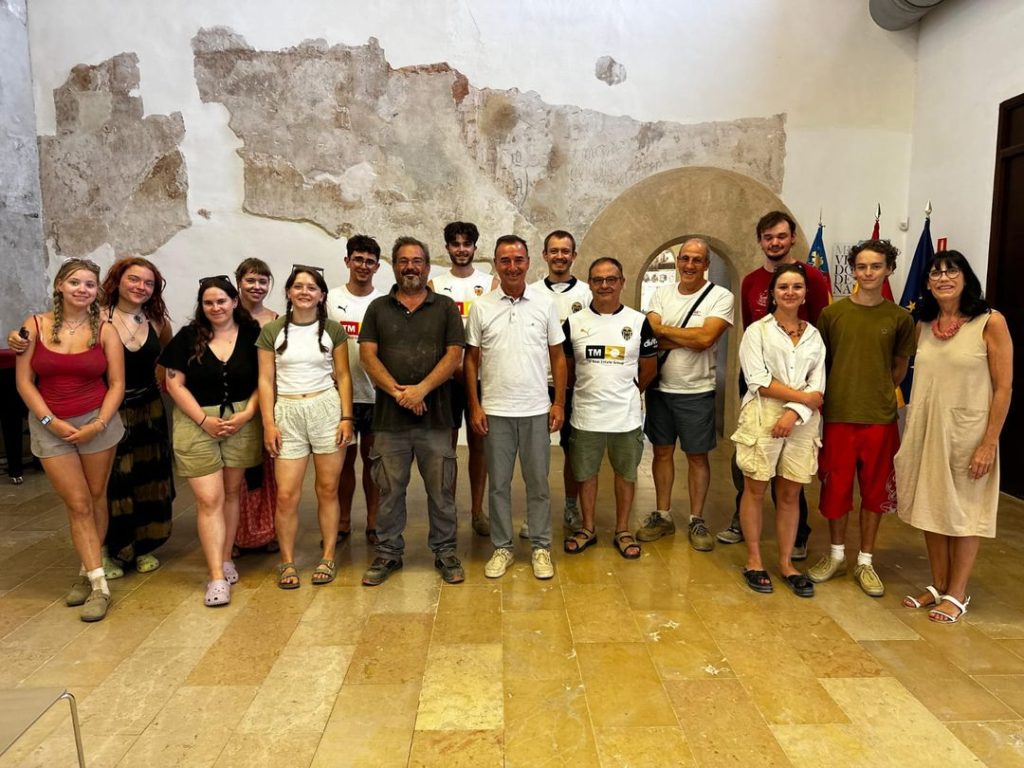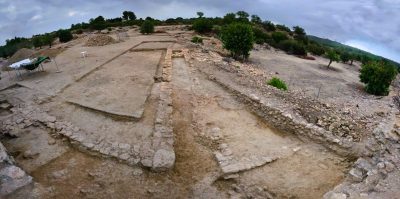
Excavations at the Visigothic site of Valencia “la Vella” hosted an archaeology course from Newcastle University, within the framework of the collaboration agreement between ICAC-CERCA and the Riba-roja de Túria City Council.
In the last weeks of July, this archaeology course included the participation of ten students, under the supervision of Chloë Duckworth, professor at Newcastle University and an expert in glass kilns.
They were accompanied by Albert Ribera, one of the site directors and a researcher affiliated with ICAC-CERCA, and David Govantes-Edwards, a specialist from the University of Córdoba, as well as the rest of the team of archaeologists from ICAC-CERCA, who were excavating the site under the coordination of Òscar Caldés (MIRMED).
The students worked in two different areas of the site, intending to excavate the glass kilns discovered recently at the late antique site of Valencia “la Vella”. The work began with the kiln in sector 1000, discovered during the 2018 campaign, and the kiln in sector 6200, discovered during the 2020 campaign.
During the excavation, levels with adobe, ceramics, and animal bones showing signs of having been exposed to the fire were found, which increases the previously known significance of the potential combustion structure, which will be of great interest in the future.
All the excavated archaeological materials have been studied and documented, and have been transferred to the archaeological storage of the Visigothic Museum of Pla de Nadal (MuPla), located in the Castle of Riba-roja.
During one of the visits to places of interest in the area, Mayor Robert Raga welcomed the students of the archaeology course from Newcastle University to the Castle of Riba-roja, also accompanied by Josep Maria Macias (ICAC-CERCA), one of the promoters of the archaeological project at Valencia “la Vella”.
Continuity of the excavation works
These excavation works followed the archaeological campaign led by ICAC-CERCA at the site of Valencia “la Vella” this summer of 2024, which, since mid-June, has extended for nearly seven weeks and included a preliminary excavation and cleaning campaign (thanks to a grant from the Culture Area of the Provincial Council of Valencia), archaeological work within the framework of the ICAC-CERCA research project, the seventh edition of the Christian and Visigothic Archaeology Course, or the ninth edition of the Conference Series, among other activities; in addition to the mentioned archaeology course from Newcastle University.
After a short break, activities will resume in October, with the probable participation of the Friedrich-Alexander-Universität Erlangen–Nürnberg from Germany.
About the Catalan Institute of Classical Archaeology (ICAC-CERCA)
The Catalan Institute of Classical Archaeology (ICAC-CERCA) is a CERCA center established as a consortium in 2003 by the Government of Catalonia and the Rovira i Virgili University. It is a Catalan institution with an international scope, at the forefront of research and conservation of archaeological heritage. Its headquarters are in Tarragona, a city recognized as a UNESCO World Heritage Site in 2000. Its researchers work to understand the past through the study of archaeological remains and promote the preservation of the historical legacy. We are CERCA!
For more information, visit www.icac.cat.
